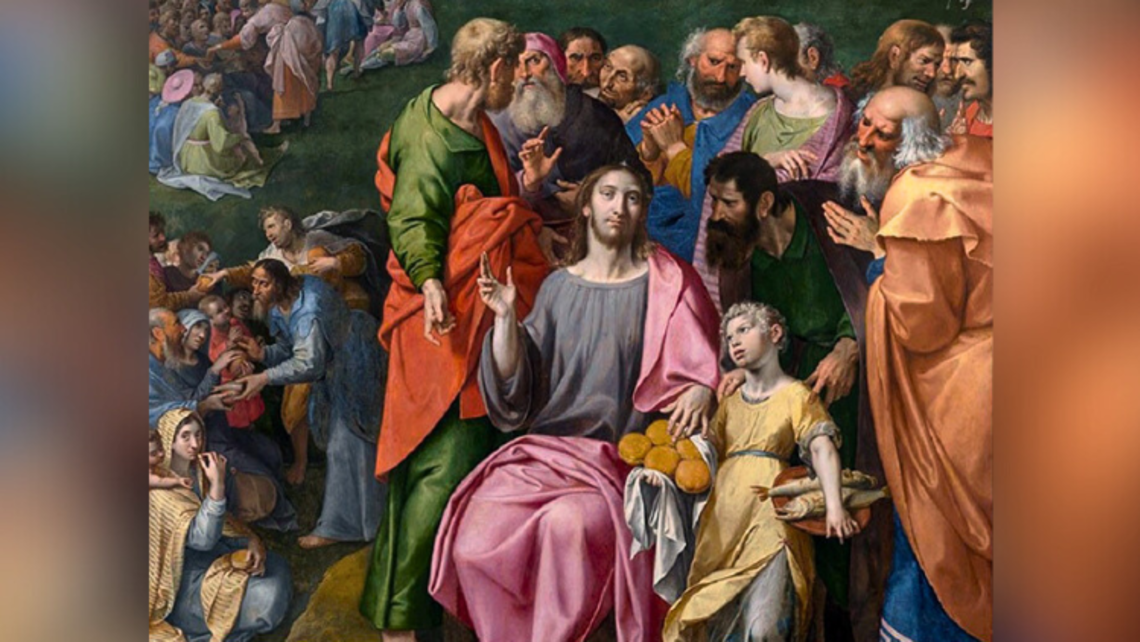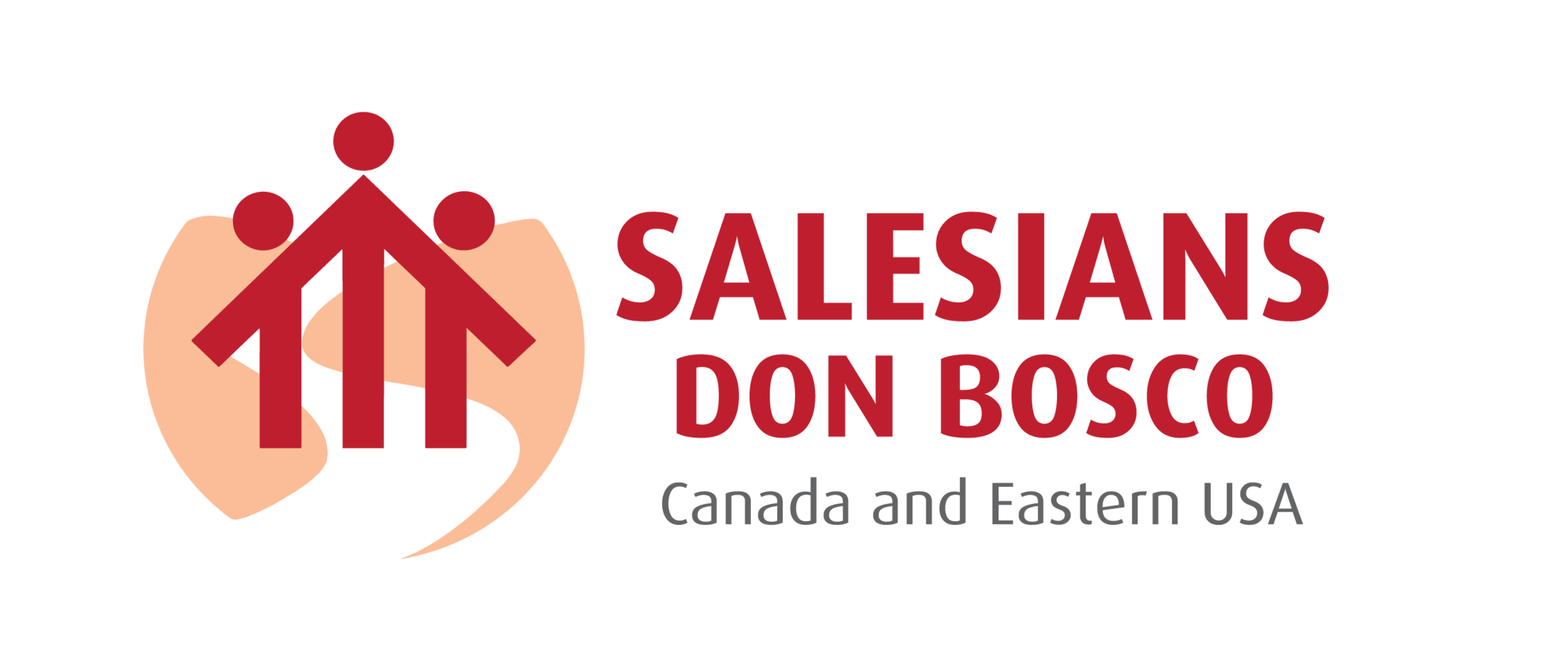
In St. John’s Gospel (6:4-14), which recounts the multiplication of the loaves, there are some details that I dwell on at length whenever I meditate on or comment on this passage.
The Message of the Rector Major Fr. Fabio Attard, SDB
It all begins when, in front of the “huge,” hungry crowd, Jesus invites his disciples to take responsibility for feeding them.
The details I am referring to are, first, when Philip says that it’s impossible to take on this task because of the number of people present (v. 7). Then, second, Andrew points out: “There’s a boy here who has five barley loaves and two fish,” but then underestimates this possibility with a simple remark: “But what’s that among so many people?” (v. 9).
I simply wish to share with you, dear readers, how we Christians, who are called to share the joy of our faith, can sometimes, without realizing it, be infected by Philip’s syndrome or Andrew’s syndrome. Sometimes perhaps even by both!
In the life of the Church, as in the life of the Congregation and the Salesian Family, there are and always will be challenges. Ours isn’t a call to form a group of people who seek only to feel good, without disturbing or being disturbed. It’s not an experience made up of prefabricated certainties.
Being part of the Body of Christ shouldn’t distract us or remove us from the reality of the world as it is. On the contrary, it urges us to be fully involved in the events of human history. This means, first, to look at reality not only with human eyes, but also, and above all, with the eyes of Jesus. We’re invited to respond, guided by the love that finds its source in the Heart of Jesus; i.e., to live for others as Jesus teaches and shows us.
Philip’s Syndrome
Philip’s syndrome is subtle and, because of this, very dangerous. Philip’s analysis was right and correct. His response to Jesus’ invitation wasn’t wrong. His reasoning followed a very linear and flawless human logic. He looked at reality with his human eyes, with a rational mind and, having considered all things, saw it wasn’t feasible. When faced with this “reasonable” way of proceeding, the hungry man stops asking me for help; the problem is his, not mine. To be more precise in light of what we experience daily: the refugee could have stayed at home; he shouldn’t bother me. The poor and the sick can sort it all out by themselves; it isn’t up to me to be part of their problem, let alone find a solution for them. This is Philip’s syndrome. He’s a follower of Jesus, but his way of seeing and interpreting reality is still fixed, unchallenged, and light-years away from that of his Master.
Andrew’s syndrome
Next comes Andrew’s syndrome. I’m not saying it’s worse than Philip’s syndrome, but it’s not far off from being more tragic. It’s a subtle and cynical syndrome: it sees a possible opportunity, but it doesn’t go any further. There’s a tiny glimmer of hope, but humanly speaking, it’s not feasible. So we end up disqualifying both the gift and the giver. And the giver who is “unlucky” in this case is a young man who’s simply ready to share what he has!
These two syndromes are still with us, in the Church and also among us pastors and educators. It is easier to crush a small hope than to give space to God’s surprises, surprises that can generate hope, even if but a small one. It’s a constant temptation to allow ourselves to be conditioned by dominant clichés so as not to explore opportunities that challenge reductionist readings and interpretations. If we’re not careful, we become prophets and executors of our own ruin. By remaining closed in a human logic that’s “academically” refined and “intellectually” qualified, the space for a Gospel reading becomes increasingly limited and ends up vanishing.
When this human and horizontal logic is challenged, one of the marks it provokes in its defense is “ridicule.” Those who dare to challenge human logic because they let in the fresh air of the Gospel will be ridiculed, attacked, and mocked. When this is the case, oddly enough, we can say that we stand before a prophetic path. The waters are stirring.
Jesus and the two syndromes
Jesus overcomes the two syndromes by “taking” the loaves that are considered few and therefore irrelevant. Jesus opens the door to that prophetic and faith-filled space that we’re asked to inhabit. Standing before the crowd, we can’t be content with self-referential readings and interpretations. Following Jesus means going beyond human reasoning. We’re called to look at challenges through his eyes. When Jesus calls us, he doesn’t ask us for solutions but for the gift of our whole selves, with what we are and what we have. Yet the risk is that when faced with his call, we remain stuck in, and consequently slaves to, our own thinking, greedy for what we believe we possess.
Only in generosity based on abandonment to his Word can we reap the abundance of Jesus’ providential action. “So they gathered them up and filled twelve baskets with the pieces of the five barley loaves left over by those who had eaten” (v. 13). The boy’s small gift bears fruit in a surprising way only because the two syndromes didn’t have the last word.
Pope Benedict comments on the boy’s gesture as follows: “In the scene of the multiplication, the presence of a boy is also noted, who, faced with the difficulty of feeding so many people, shares what little he has: five loaves and two fish. The miracle doesn’t take place in a void, but from a modest sharing of what a simple boy had with him. Jesus doesn’t ask us for what we don’t have, but shows us that if each one of us offers what little he has, the miracle can always happen anew: God is able to multiply our small gesture of love and make us participants in his gift” (Angelus, July 29, 2012).
Faced with the pastoral challenges we have, faced with the thirst and hunger for spirituality that young people express, let’s try not to be afraid, not to remain attached to our things, to our ways of thinking. Let’s offer what little we have to him, let’s entrust ourselves to the Light of his Word, and may this and only this be the permanent criterion for our choices and the light that guides our actions.






